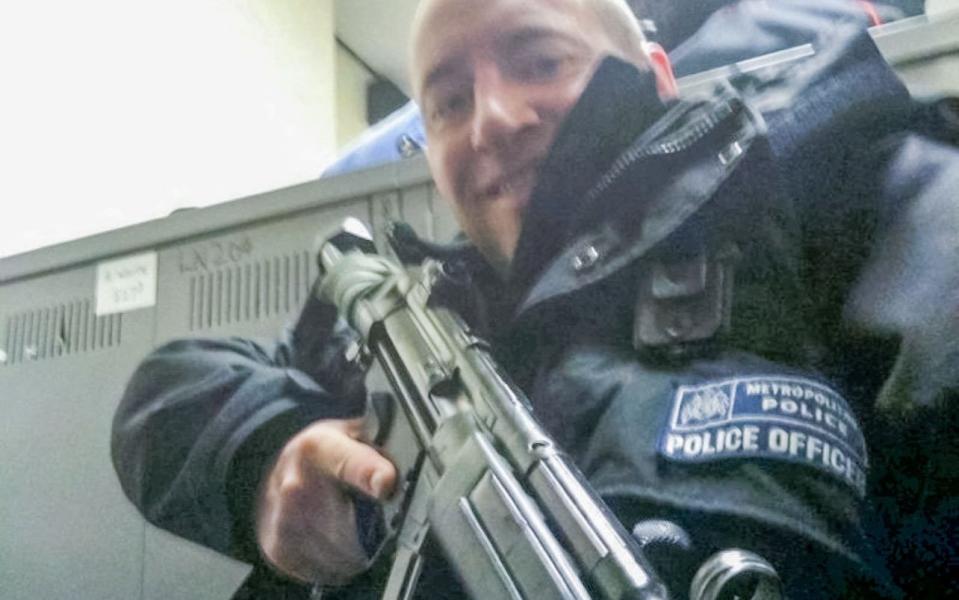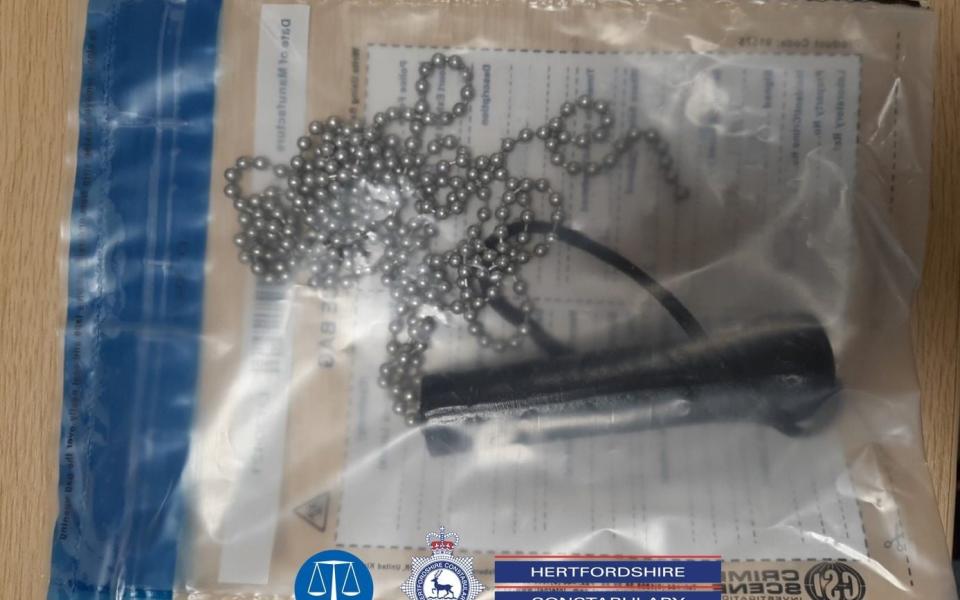David Carrick used his role in the Met to silence victims who believed ‘the law protects its own’

Serial rapist David Carrick repeatedly used his status as a police officer to attract, abuse and then silence his victims, convincing them they would never be believed if they came forward, a court has been told.
One victim described how she was too frightened to report him after he “drilled into her that he was the police, he was the law”.
Another, who suffered a violent rape at his hands, recalled how she was told by a nurse in Accident & Emergency that there was little point in lodging a complaint because “the law protects its own”.
Last month it was revealed how the police missed at least nine opportunities to identify Carrick’s offending.
In a series of heart-rending victim impact statements almost a dozen women – two of whom were serving police officers – described how their lives had been torn apart by Carrick who spent 20 years in the Met.
Many said their ordeal had left them unable to trust police officers, with one describing how she now froze every time she heard a siren.
The details were set out at the beginning of Carrick’s two day sentencing hearing after he pleaded guilty to 49 counts covering more than 70 sexual offences last month.
The 48-year-old is expected to be jailed for much of the remainder of his life when Mrs Justice Cheema-Grubb, the judge presiding over the trial, passes sentence on Tuesday morning.
Opening the prosecution case against him, Tom Little KC told Southwark Crown Court that Carrick had been responsible for a “systematic catalogue of violent and brutal sexual offences perpetrated on multiple victims.”
The prosecutor said it did not matter to Carrick who the victims were, adding: “Where he had the opportunity he would rape them, sexually abuse them, assault them and humiliate them.”
The court heard how Carrick often used his status as a police officer to impress and attract his victims, deliberately targeting vulnerable women.
Once he had lured them into a controlling relationship he would use the fact he was a Met officer to intimidate and silence them.
Mr Little explained: “He frequently relied on his charm to beguile and mislead the victims in the first place and would then use his power and control – in part because of what he did for a living – to stop them leaving or consider reporting him.
“He was no doubt aware that they would conclude they would be unlikely to be believed if they were to come forward on their own and claim that a Metropolitan Police officer had raped them.”
He targeted his first victim in 2003, meeting her in a bar and telling her she would be safe with him because he was a serving officer.
Carrick then invited the woman back to his south London flat, where he repeatedly and violently raped her.
The court was told that as she tried to get away, she had bitten his arm and Carrick had put a black handgun to her head telling her: “You are not going.”
He then put his hands around her throat and told her that he was going to be the “last thing she saw”.

In her moving impact statement, the woman said: “That night I felt I had encountered evil, for the past 19 years I’ve been lost in my own life mainly due to this one event.
“I distinctly remember his words, ‘Come on, you can trust me I am the safest person you can be around. I am a police officer.’
“I honestly thought he was going to kill me that night, I thought he was going to rape me and kill me and that my life would be over.”
The woman suffered numerous injuries in the attack and the following morning went to King’s College Hospital, where she told a nurse she had been raped by a police officer.
She explained: “The nurse told me that it wasn’t the first time she had heard this and unfortunately, she doubted it would be the last.
“She told me it would be very hard getting it to go to court as the law tends to protect their own and that it is also likely that he would know it was you and could make your life hell for doing so.”
Another of Carrick’s victims, who was subjected to almost two years of degrading sexual attacks, described how he threatened her with his police baton and sent her a photograph of his work-issue firearm saying “remember I am the boss.”

The woman confided in a friend that Carrick had raped her and was advised to report what had happened.
But she said she was too frightened, thinking nobody would believe her as the defendant was a police officer and “very powerful”.
Fear of not being believed was a theme that ran through many of his victims’ testimonies.
One woman who he sexually assaulted in 2009 said she had considered reporting Carrick, but had decided against it because she doubted anyone would do anything if she made a complaint.
In 2015, Carrick told a woman he was a Met officer before raping her. She told her sister what had happened around three years later but thought she would not be believed if she reported the matter because he was a police officer.
In 2018, Carrick met a victim on a dating site, telling her what he did for a living in order to win her confidence.
Following the attack, she said her trust in the police had been shattered: “I don’t trust the police anymore, if anything went wrong I don’t know whether I would want to call the police as I’d worry that they would send a male officer like him.
“The thought of being alone with a male officer makes me very anxious. I wouldn’t want to be in a room with a male officer or even any of my friends or family.
Another woman he abused between 2018 and 2020 said she was scared of him because he was a police officer who liked to control her.
In her victim impact statement, she said: “I was too frightened to go to the police to lodge a complaint as the defendant had drilled it into me that ‘he was the police, he was the law and he owned me’. I was convinced the police would not believe me and would not investigate my complaint.”
The Met failed to take action against Carrick despite numerous complaints being raised about his behaviour.
He was finally sacked from the force last month after pleading guilty and being unmasked as one of the country’s most prolific sex offenders.
Carrick’s crimes are set to form part of the independent inquiry looking at the murder of Sarah Everard, who was raped and strangled by then-serving Met officer Wayne Couzens in March 2021.

 Yahoo Movies
Yahoo Movies 